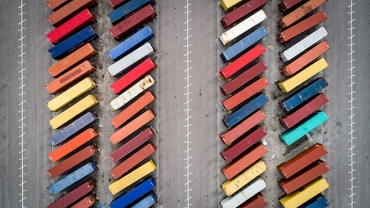
Classification of soya bean (by)products
30/11/23
Soya bean meal, a byproduct of soya bean oil production, should be classified under heading 2304 and not 2309, according to a ruling of the Court of Justice of the EU (‘CJEU’) on 15 November 2023. Heading 2309 is a residual heading and therefore it should be assessed whether a product can be classified under any other heading of Chapter 23 of the Combined Nomenclature (CN) before classification under heading 2309 would be possible.

What does this mean for your business?
This is not the first CJEU case in relation to the classification of soybeans products. As such if your company imports these types of products. We do advise to review whether they have been classified correctly, since there can be significant difference in import duty rates to be paid depending on the classification. As an example, in this particular case, the classification under heading 2304 is free of import duties while for the classification under heading 2309 the import duty rate is 888 euro per ton.
Heading 2309 has been considered as a residual heading by the CJEU, it must first be assessed whether the products can be classified under another heading in Chapter 23. On top of that there are specific criteria for products to be classified under heading 2309 (these follow from an earlier CJEU case). Only if the product is suitable for animal feeding, has undergone final processing and constitutes a preparation, it can be classified under heading 2309.
Background to the case
Viterra Hungary (‘Viterra’) applied for the release for free circulation of soybean meal from Brazil. The soybean meal was classified under heading 2304 of the CN. A sample of the soybean meal was examined by the Hungarian classification experts (‘Experts). According to the Experts the soybean meal, which was meant to be used as animal feed, was manufactured in different stages and the heat treatment of the soya beans altered the nutritional values of the product. The Experts decided that the tariff classification proposed by Viterra was incorrect and the product should be classified under 2309. Viterra appealed against the decision, and the case eventually ended up before the highest Hungarian court who referred preliminary questions to the CJEU.
Judgement
The referring Hungarian court asked the CJEU seven questions. The CJEU combined the questions and answered the following question: “If a product is imported in the form of pellets or granules, which acquired following the extraction of soya-bean oil using a solvent and heat treatment to remove that solvent so that the product can be ground and after that mixed with a compound for animal consumption, comes under heading 2304 of that nomenclature or under heading 2309 of that nomenclature”.
According to the CJEU residues are covered by heading 2304 and a residue refers to that which remains after a physical or chemical operation or industrial processing. What remains after the extraction of oil from soya beans by solvents, in a press or rotary expeller qualifies as a residue. The heat treatment does not result in loss of character of residue, because removing the solvent cannot be seen separately for the production. Therefore the soybean meal should be classified under 2304.
How can we help?
The classification of goods can be a difficult matter and requires experience/expertise. PwC has this experience/expertise and knowledge and as such can help your business with classifying its goods or review whether your goods are classified correctly.
PwC will also be able to assist in reviewing the possibilities of preferential origin management, which can help lower the import duties to be paid. Inward Processing Relief might also be an option to lower the import duties to be paid, especially when the goods will undergo processing and are subsequently exported.
Contact us

















